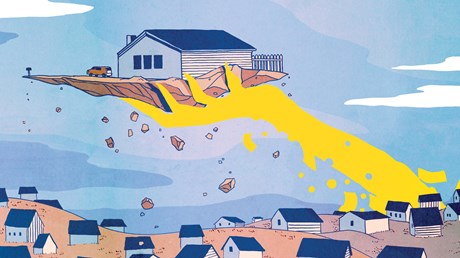Money promises autonomous abundance. But we need someplace where we cannot hide.

Several friends helped my wife, Catherine, and me move into our first apartment, down and then up two steep and narrow sets of stairs. Three items seemed almost impossible to get up those stairs: a fragile old chest of drawers my wife had inherited from her grandmother, a queen-sized box spring, and an unfathomably heavy sofa bed.
We christened them the Ordeal of Delicacy, the Ordeal of Dimension, and the Ordeal of Strength. Twenty years later we remember those ordeals; the friends who cheerfully endured them with us, sweating and swearing on a hot June day; and the sense of relief when we managed to overcome each one.
A few years later, it was time to move again when my wife took the job she has held ever since. This time, the college that hired her covered the moving costs.
The professional movers went through the same ordeals on our behalf that our friends had gone through a few years before—sweating and likely swearing as well—but I certainly cannot remember their names, or even a hint of their faces. They were paid, fairly, to do a fair job. And once the job was done, they were gone.
This is the power of money: It allows us to get things done, often by means of other people, without the entanglements of friendship.
To this day, I owe my friends something for the move early in our marriage—at the very least, my thanks and my affection. Indeed, I already owed them something before the move. To be a friend is to be intertwined with someone else in a loose but permanent way.
But our relationship, such as it was, with the professional movers was different. It began and ended with a modern form of magic—a transaction that, without the slightest actual effort on our part, transported all our possessions from ...
from Christianity Today Magazine
Umn ministry


.gif)

.gif)
.gif)
